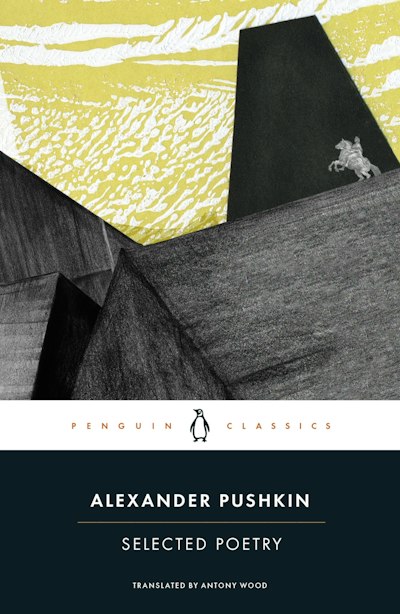Selected Poetry
- Published: 4 June 2020
- ISBN: 9780241207154
- Imprint: Penguin eBooks
- Format: EBook
- Pages: 336
A volume to keep within easy reach at most times
East-West Review
Everybody knows how difficult Pushkin's poems are to translate. Antony Wood has succeeded, within the limits of the possible
John Bayley
Pushkin's poetry is lyrical, beautifully simple, vivid, and endlessly emotive. It can be enjoyed by all readers, regardless of their background in poetry. And there is now one definitive book of Alexander Pushkin's poetry, the one book you need to read in order to fully appreciate Alexander Pushkin's poems: Alexander Pushkin Selected Poetry, translated with complete command and majesty by Antony Wood
Books and Bao
This Selected Poetry by Antony Wood supersedes all previous translations ... Wood's 'The Bronze Horseman' gives us Pushkin at his most tragic. 'Count Nulin' shows him at his most light-hearted. 'The Tale of Tsar Saltan' bounces along with delightful vitality. Even with the delicately musical short lyrics - still harder to translate - Wood's success rate is remarkable ... The result is a more rounded picture of Pushkin - in many ways the most universal of poets
Robert Chandler, The Financial Times
Anthony Wood is to be congratulated on this suburb collection, which renders Pushkin in all his matchless grace, wit and musicality
The Tablet
Antony Wood's translations show an unusual grace and a deep knowledge of Pushkin's poetry
Elaine Feinstein
Re-creating Pushkin requires skills approaching magic. Antony Wood is one of the two or three best translators of Russia's greatest poet in the Anglophone world, because his Pushkin moves: you watch him dance as well as hear him sing
Caryl Emerson
This Selected Poetry deserves a wealth of praise . . . a truly valuable edition both for its scrupulous and often magnificent versions of individual poems and as a worthy general introduction to this poet, who is such a treasure for Russia and for the world
Los Angeles Review of Books
'Wood's lively translations grasp the irrepressible sense of freedom which is the poet's hallmark ... Pushkin is lucky in Antony Wood. Pleasure is to be found on every page of this book'
The Times Literary Supplement


